Von dem verschlafenen Pangani mit heruntergekommenen ehemaligen arabischen Handels- und deutschen Kolonialhäusern fahren wir gen Süden, immer der Küste entlang zur wahren Attraktion hier: den Stränden rund um die Fischerdörfer von Ushongo – angeblich die schönsten des Festlands (hinter Sansibar natürlich). Über Naturstraßen erreichen wir das von der iOverlander-App empfohlene Camp „Mikes Cottages“. Da wir uns aber nicht auf einen Platz im Hinterhof mit Blick auf Plastikflaschen statt Meeresbrandung einlassen, das Nachbarcamp zwar einen tollen Platz am Strand aber kein WLan bietet, bleiben wir vier Tage in der Emayani Beach Lodge. Und weil deren Campsite bislang nur in der Planung existiert, dürfen wir direkt bei einem der zwölf aus Holz und Matten gebauten Bungalows campen, nutzen dessen Sanitärbereich, das großzügige, nach allen Seiten offene Restaurant und verbringen hier vom Sundowner bis zu dem mitternächtlichen Cava aus Südafrika das leiseste Silvester unseres Lebens.
Und abgesehen von etwa 15 Tagesgästen am Neujahrstag, deren zweifellos zur Oberschicht gehörende Kinder den Pool mit viel Lärm und wenig Rassendünkel genießen, sind auch die Tage still. Der Tourismus steckt noch in den Kinderschuhen, das Tauchzentrum ist gebaut, wegen Corona noch nicht belegt, Jetski und ähnliche Dezibel-Schleudern gibt es gar nicht und die Fischer fahren in ihren Daus nur mit Windkraft. Und weil es so wenige Touristen gibt, sind nicht mal Beach Boys am Strand. Idylle pur!
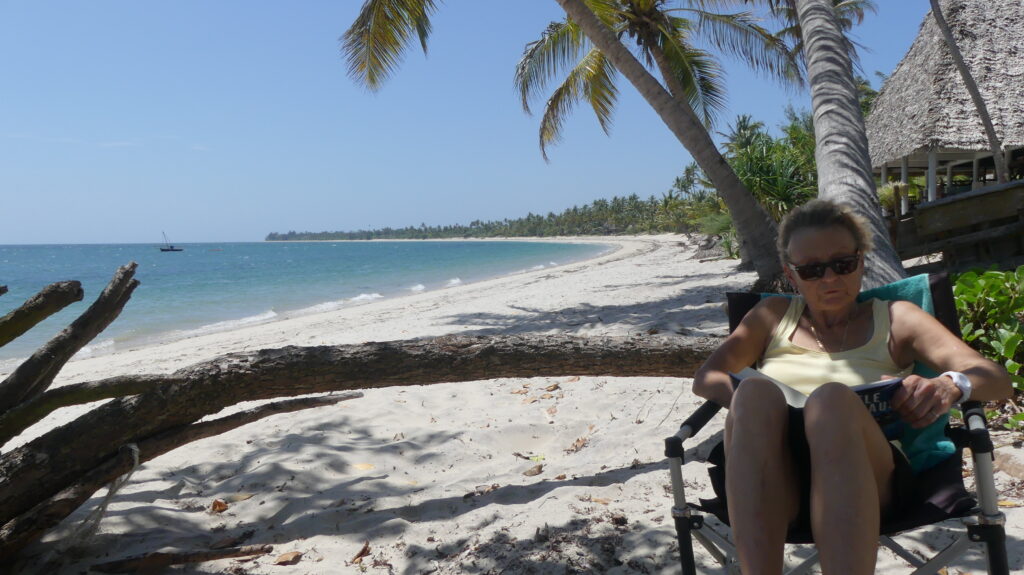
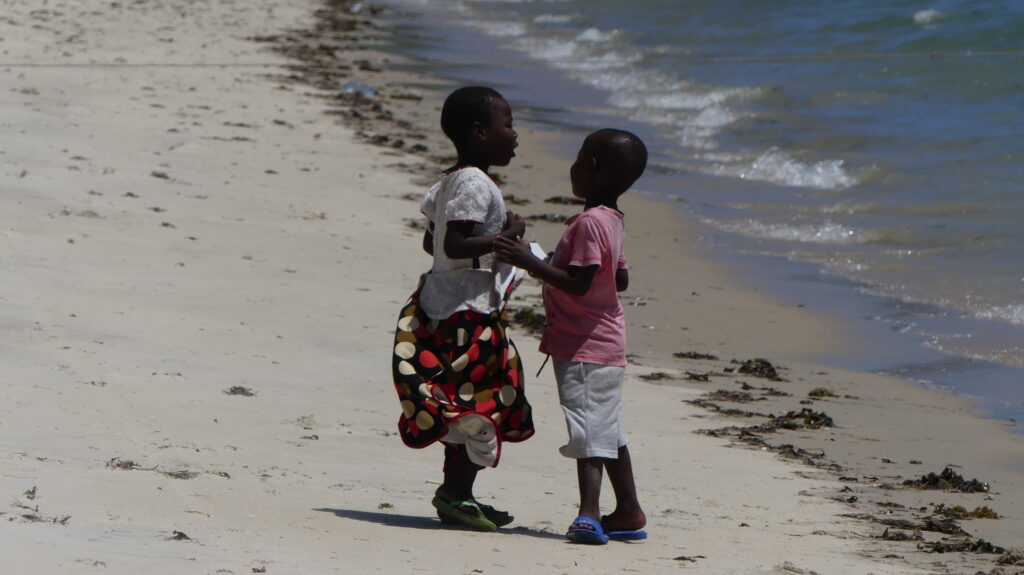
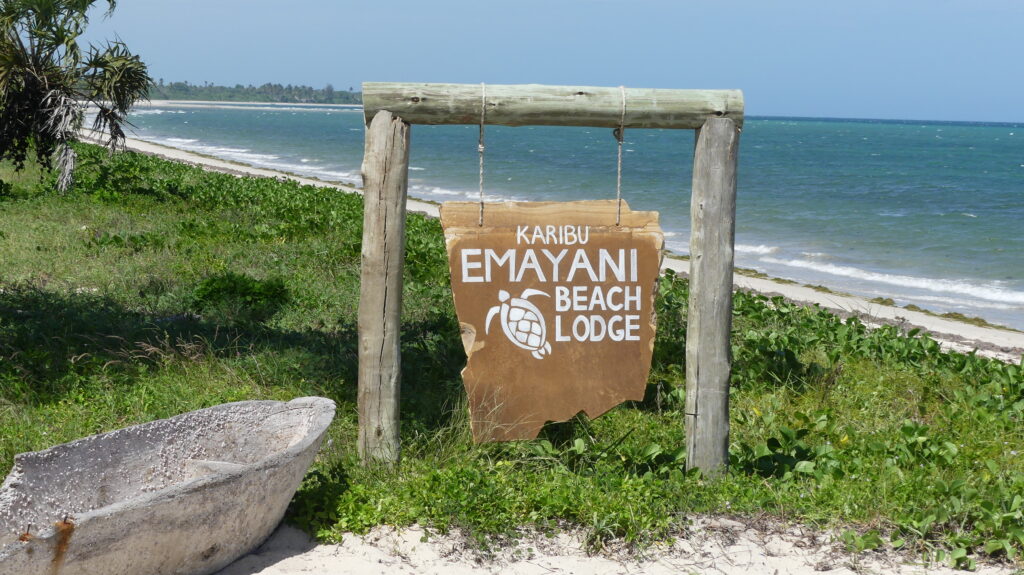
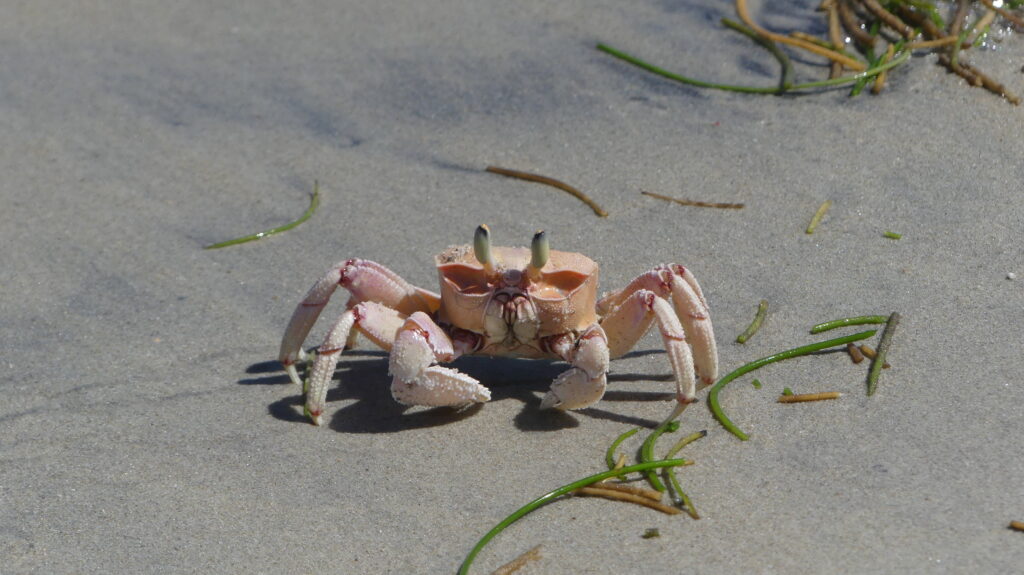
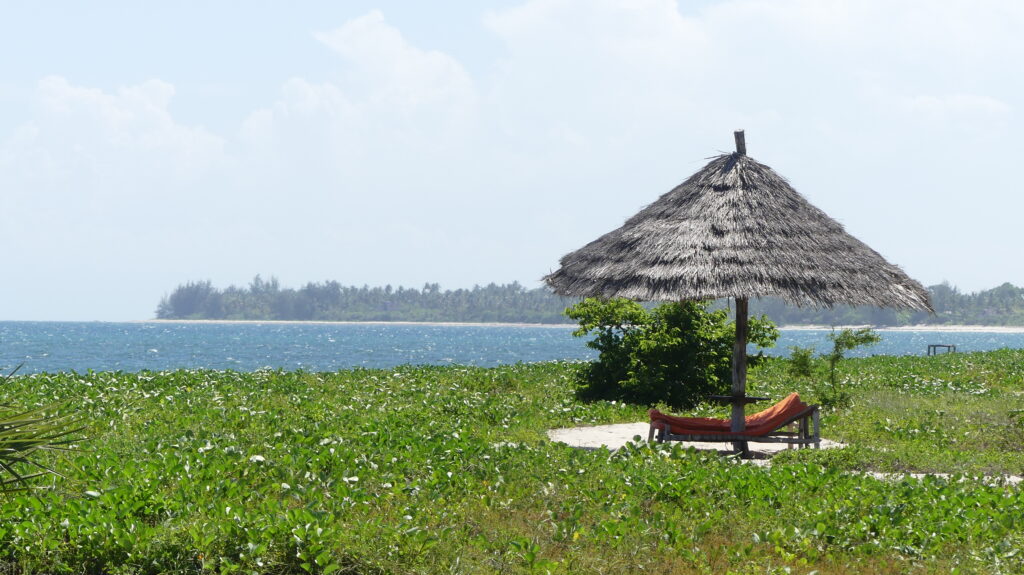
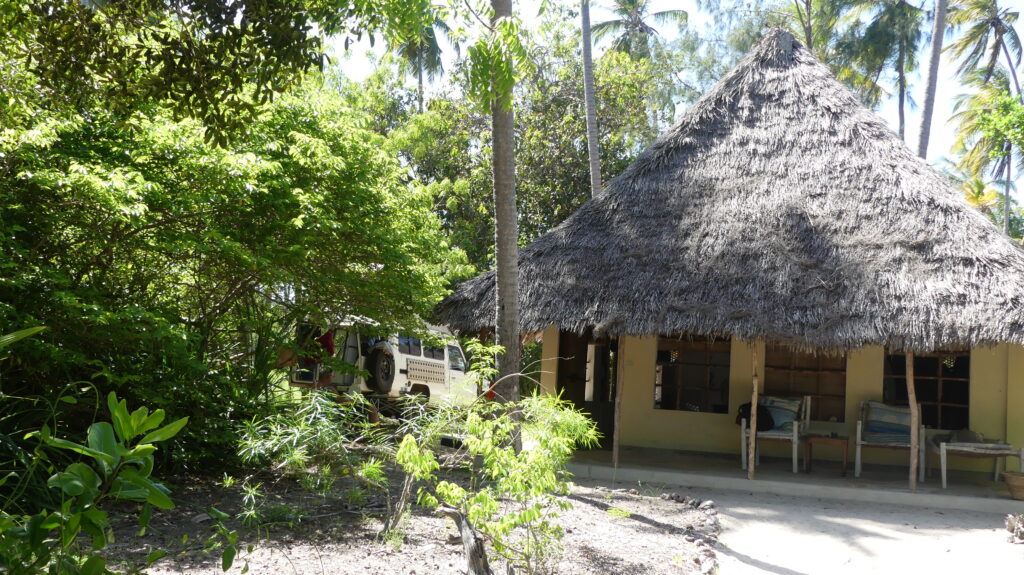
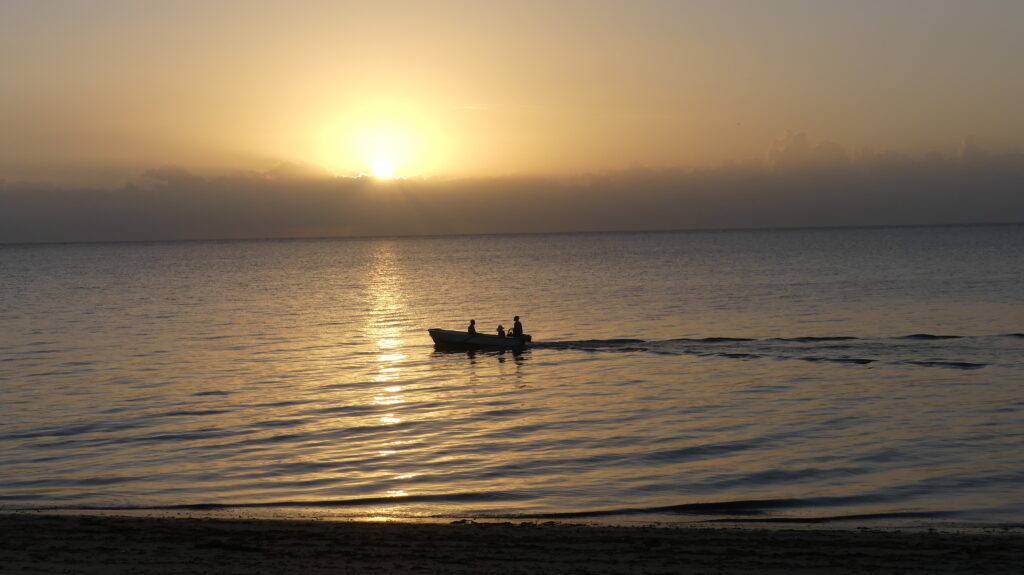
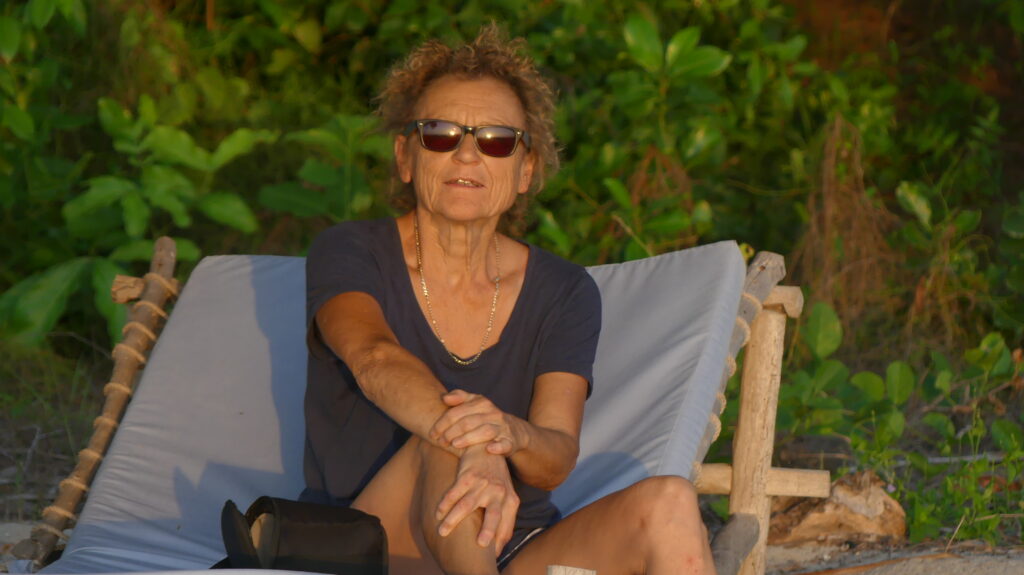
From sleepy Pangani we drive south, always along the coast to the real attraction here: the beaches around the fishing villages of Ushongo – supposedly the most beautiful on the mainland (behind Zanzibar, of course). We reach the camp „Mikes Cottages“ recommended by the iOverlander app via natural roads. But since we don’t want to settle for a place in the backyard with a view of plastic bottles instead of ocean view, and the neighbouring camp offers a great place on the beach but no WiFi, we decide instead for Emayani Beach Lodge. As their campsite only exists in the planning stage, we are allowed to camp directly next to one of the twelve bungalows built of wood and mats, use its sanitary facilities, the spacious restaurant open on all sides and spend the most quiet New Year’s Eve of our lives here.
And apart from about 15 day guests on New Year’s Day, whose children, undoubtedly belonging to the upper class, enjoy the pool with much noise and little racial discourse, the days are quiet too. Tourism is still in its infancy, the diving centre is built, not yet occupied because of Covid-19, jet skis and similar decibel-canons do not exist at all and the fishermen only use wind power in their dhow. As their campsite only exists in the planning stage, we are allowed to camp directly next to one of the twelve bungalows built of wood and mats, use its sanitary facilities, the spacious restaurant open on all sides and spend the most quiet New Year’s Eve of our lives here, from sundowner to midnight cava from South Africa.
And apart from about 15 day guests on New Year’s Day, whose children, undoubtedly belonging to the upper class, enjoy the pool with much noise and little racial discourse, the days are quiet too. Tourism is still in its infancy, the diving centre is built, not yet occupied because of Covid-19, jet skis and similar decibel-canons don’t exist at all and the fishermen drive in their dhows only with wind power. And because there are so few tourists, there aren’t even any beach boys around. Pure paradise!
Schreibe einen Kommentar